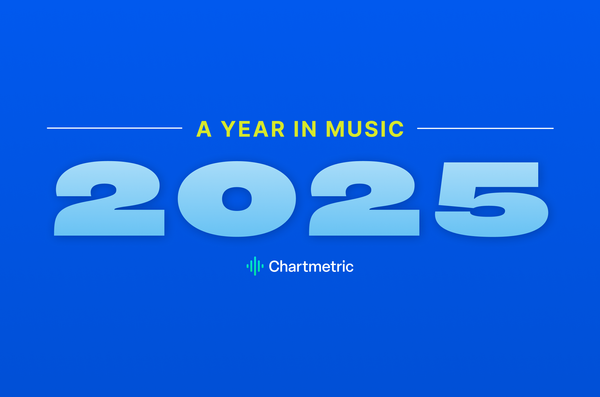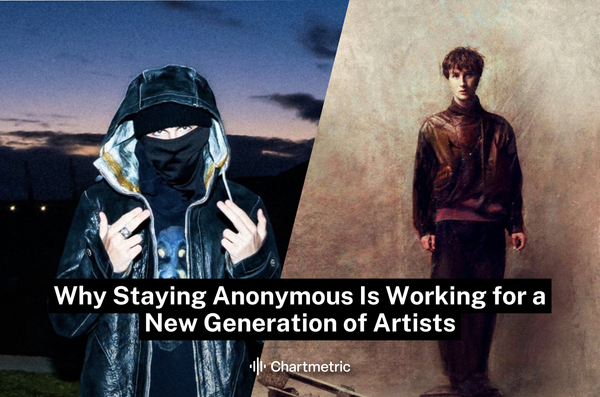Physical commodities often steal the spotlight, but cultural exports like music and art are also major players for countries around the globe. Just ask Michele Amar, a New York-based music industry executive and founder of discovery platform France Rocks. In 2013, Amar was tasked by the French Embassy to advance French music at the international level while working at the nonprofit French Music Export Office.
“I decided to create France Rocks, which was a fun way to market French artists in the U.S.,” said Amar.
The music she promoted included a variety of genres, not just Francophone music (i.e. music with French lyrics), but also instrumental, electronic and English-language tracks produced by French artists. So if you recently vibed to L’Impératrice’s French disco pop or grooved to Charlotte de Witte's Belgian acid techno at Coachella, you can shout out Amar for her part in that lineup.
France’s genre diversity isn't just about the sounds, Amar says, but also about where they come from. France Rock’s discovery platform pulls from a wide map, hitting up European Francophone spots like Belgium, Luxembourg and Switzerland, then highlighting North Africa with sounds from Morocco and Tunisia. Major influences also come from Mali, the Congo, Benin, Ivory Coast and, finally, across the ocean to French Caribbean islands like Haiti and Guadeloupe.
Though France never launched a full-on “British Invasion” the way U.K. labels did back in the day, the influence of French music has permeated the American music scene over the years. With a mix of electronic beats, vibrant pop, and soulful chansons (lyric-driven cabaret songs), French and Francophone artists have carved out a unique niche.
Today’s landscape of French and Francophone music
The contemporary French and Francophone music scene spans the globe, featuring both indie artists and mainstream superstars.
Canada’s musical mix, from folk traditions to indie vibes
Just 500 miles up from New York City, the Québec music scene has always offered up classic Francophone folk hits from living legends like Bottine Souriante and Le Vent du Nord. Nowadays, it's also serving some serious indie freshness, according to Maurin Auxéméry, booking director for Spectra Festivals (the minds behind the iconic Montreal International Jazz Festival and French-language fest Francos de Montreal).
Auxéméry says popular acts include Montreal indie band Corridor and Hubert Lenoir, a solo artist hailing from Quebec City. The stats agree: Corridor experienced a considerable surge in Spotify traction over the past year, with monthly listeners peaking around 68,000. The surge is seemingly due to the band’s increased presence in playlists, which saw a rise from just above 3,000 to almost 4,200 inclusions—a marked estimated increase of 40%.
Similarly, Hubert Lenoir's Spotify presence experienced notable growth over the past six years, driven in part by the artist’s traction on playlists. From January 2018 to January 2024, Lenoir’s playlist count reached nearly 9,000, and his total reach frequently hovered around or exceeded 1 million listeners.
Speaking of Canada, it’s impossible to overlook the distinctive croon of Lisa LeBlanc, a New Brunswick singer-songwriter and banjoist best known for a style she and fans have lovingly dubbed “trash folk.” Her performances blend the genres of folk, rock and disco. She sings in both English and French stylized with her native patois dialect known as chiac. Auxéméry describes LeBlanc as a “musical treasure.” She is featured on over 3,000 Spotify playlists featuring genres from chansons to country. She has been attracting fans and listeners like crazy, converting one-off followers to monthly listeners at a rate of 55.9%. Not to mention, her YouTube channel has over 17 million monthly views.
Electronic dance music enters the chat
Electronic house and dance music could be described as France's contemporary claim to fame, especially at the global music scene level. The genre is responsible for creating some huge French stars like DJ David Guetta and former electronic duo Daft Punk. Both are classified as “superstars” according to Chartmetric, with combined audience sizes well into the multi-millions.
"Electronic music is quite popular in the U.S., and French DJs have a different sound that’s really catching on,” said Amar.
Of Guetta’s 69 million audience members, the largest crowd is on YouTube, followed closely by Spotify. His audience skews international, with Paris being the leading city before London and São Paulo.
In comparison, Daft Punk’s still-loyal audience tallies up to just above 18 million, with Spotify as the lead platform. Unlike Guetta, who is most popular at home, Daft Punk’s largest concentration of monthly listeners are based in Mexico City. (Paris is a close second at 357,000 monthly listeners.)
Just behind these two electronic icons is the tropical-influenced duo Polo & Pan. The act consists of musicians Paul Armand-Delille — nicknamed “Polocorp,” or “Polo” — and Alexandre Grynszpan — aka “Peter Pan,” or “Pan.”
With a combined audience of 1.2 million, these musicians have hit the mainstream and gained traction in cities across France, Europe and North America. Their tracks can be found on over 48,000 playlists. The single, “Ani Kuni” tops their streaming charts, with 44 million total Spotify plays and 28 million YouTube views.
French meets world influences
As Amar mentioned, France’s musical community is not limited to Europe. She points to artists like Tunisian-American singer-songwriter Emel Mathlouthi (better known as Emel), who mixes traditional instruments and rhythms with contemporary influences and was once called “the 21st century catalyst for change” by NPR.
“She sings in Arabic, but it's a rock-kind of sound, which is very interesting,” said Amar.
Emel’s monthly Spotify listeners have shown steady growth of roughly 1,550% over the last six years. Her surge in listenership aligns with her frequency of playlist inclusions, which has continuously climbed at a similar rate. Like the fellow artists on this list, Emel’s long-tail success highlights how savvy playlisting strategies can over time skyrocket an artist’s presence, capturing the attention of both curators and listeners alike.
Meanwhile, in West Africa, Beninois-French singer-songwriter Angélique Kidjo is also breaking into the mainstream. The Grammy-winning musician famously performed NPR’s 1,000th Tiny Desk Concert and has sung with the likes of Alicia Keys, Philip Glass and Peter Gabriel. Kidjo has been on the scene since the early 1990s and still holds Chartmetric’s No. 14 spot for worldbeats.
Coachella: An annual wave of French talent on tour
And of course, Coachella every year keeps things fresh on the Francophone talent front. As described in this Coachella subreddit, “If there's something Coachella has been consistent with all these years, it's been booking French artists that blow people away every year.”
Starting with Daft Punk’s iconic 2006 performance, then the unforgettable Jean-Michel Jarre in 2018, onto Christine and The Queens’ “lifechanging” 2019 set or L'Impératrice turning the show into a full-blown dance party in 2022, Coachella never seems to forget France all the way out there in the desert.
The 2024 Coachella lineup was similarly stacked with dancey Francophone sounds. The festival saw L’Impératrice return and also lit up the stage with French-Algerian producer DJ Snake (whose monthly Spotify listeners just shot up by a whopping 391,000), Belgian Francophone DJ Charlotte de Witte (who just gained a cool 1,000 new Instagram followers), Gesaffelstein and Folamour.
In addition, the Palestinian-French-Algerian-Serbian rapper Marwan Abdelhamid (better known as Saint Levant) dedicated his Coachella performance to Palestinians in Gaza. Born in Jerusalem, Abdelhamid now lives in Los Angeles and has a worldwide audience and 1 million Instagram followers.
From Paris to the world, where beats beat boundaries
French and Francophone musicians are connecting continents and shaping the world’s global narrative. From Tunisia’s deep grooves to Belgium’s banging techno, French and Francophone music seems to be part of a global beat takeover.
“It’s not just the language,” says Amar. “The different way of writing and the different melodies are what attract American listeners to French music.”
Without a doubt, that specific combination of unique sensibilities, cross-cultural conversation and fresh approach to songwriting draw a phenomenal crowd.
Visualizations by Sarah Kloboves, cover image by Crasianne Tirado






